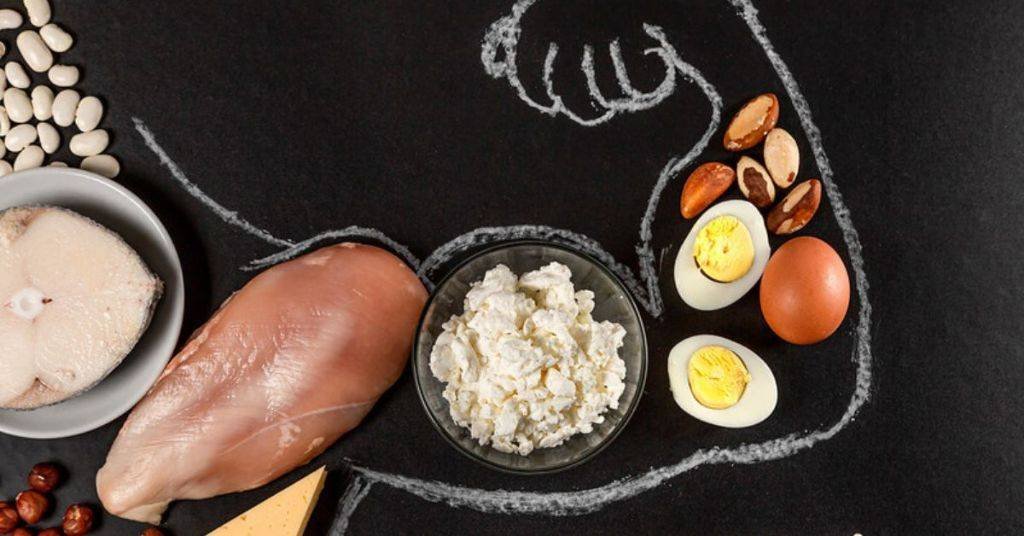
Table of Contents
Your daily intake for proteins is essential for growth, repair, energy, and other vital bodily functions like immunity and the making of digestive enzymes. While the minimal intake is 0.8g/kg/day or 0.36g/lbs, your ideal daily intake depends on several factors like your age, sex, and your level of physical activity.
The recommended daily allowance or intake for protein as stated above is just the amount to prevent the effects of protein deficiency like the loss of muscle mass, weakness, anemia, and stunted growth. To stay healthy, it’s not enough to simply eat enough proteins for a day as the quality of the protein matters too.
If by trying to increase your protein intake you opt for more red meats, you may be in for a healthwise disappointment. Taking more white meats like fish, chicken, and numerous sources of plant-based proteins is a better choice
Kindly keep in touch by signing up for our newsletter:
Recommended daily intake for protein.
While the recommended daily protein intake is 0.8g/kg/day, the maximum daily intake is about 3.5g/kg/day as contained in the National Library of Medicine.1 You are bound to suffer protein deficiencies if your daily intake falls below the minimum or expose yourself to the danger of excess protein consumption if you go above the maximum.
The above figures are recommended protein requirements based on your body weight.
Going by your total daily calorie needs, it is recommended that 10 – 35% of your daily calorie requirements should come from proteins. The minimum recommendation is that 10% of your daily calorie needs should come from proteins while the maximum is 35% of your daily calorie intake. These are just ranges.
For instance, if your daily calorie requirement is 2500 calories, you will need a minimum of 250 calories to come from protein and a maximum of 875 calories (35% of your daily calorie requirement of 2500 calories) of that daily calorie requirement to be sourced from proteins. This represents a minimum of 62.5g (4 calories = 1g of protein) and a maximum of 218.8g of protein daily to stay healthy and fit.
Your specific daily protein requirement depends on several factors as mentioned earlier such as:
- Age,
- Sex,
- health status,
- Musculature or body build, and
- Level of physical activity.
- For women, additional factors include pregnancy and lactation.
Pregnant and lactating mothers will need to take more proteins than non-pregnant women as stated in a publication by the Harvard Medical School. Physically active women with higher daily calorie requirements will also be required to take more proteins than their nonactive counterparts.
You can calculate your daily protein requirement and other values by using an online tool provided by the Department of Agriculture.
Daily protein intake for muscle growth.
While the recommended dietary allowance is 0.8g/kg/day, you will need to consume between the range of 1.0g/kg/day to 1.6g/kg/day for optimal skeletal muscle protein accretion or growth, and strength, as contained in the National Library of Medicine.
This has to be taken alongside resistance training for best results. The actual amount of protein you need within this range has to do with your level of physical activity. For clarity, I will discuss this in the light of your physical activity.

Resistance training with good protein intake helps to reduce your fat mass and increase your free fat mass. This improves your body composition.
People with minimal physical activity.
Though studies on short-term nitrogen balance recommend 0.8g of protein per kilogram of body weight daily for someone with minimal physical activity, you will need up to 1g of protein per kilogram of body weight daily for optimal muscle growth. That’s about an additional 0.2g/kg/day above the minimal recommended daily protein allowance. (source)
What the figure represents is taking an amount of proteins in grams that numerically equals your body weight in kilograms. For instance, if you weigh 70kg, you will need a minimum daily protein intake of 70g to meet the needs of skeletal muscle growth.
People with moderate activity.
With moderate activities, you will need a minimum of 1.3g of protein per kilogram of body weight daily to meet the needs for skeletal muscle accretion. This is essential for muscle growth. When combined with resistance training you can be sure of getting the best out of it but that may require you to increase your intake.
For clarity, moderate activities include brisk walking, low-intensity dancing, slow-pace swimming, and gentle or slow-pace cycling on level ground. Going at a faster pace will increase your minimum dietary protein requirement for skeletal muscle growth.
People with intense physical activity.
Intense physical activities include cycling uphill or at a fast pace, running, jogging, fast-paced lawn tennis, table tennis, etc. With an activity level that falls into this group, you will need a minimum of 1.6g of protein per kilogram of your body weight per day as contained in the National Library of Medicine.
Most people eat an adequate amount of proteins daily so it doesn’t appear to be a challenge getting more but you are better off with proteins from healthy sources. Taking protein shakes can be beneficial if you are into very high-intensity exercises or take meals you suspect are low in protein content. I will discuss protein shakes and supplements, regarding muscle gain, in the section below.
Can you gain muscle without protein?
Proteins are the building blocks of muscles without which there is no way you can gain muscles. Amino acids from the digested food you take are combined to make up proteins. Without amino acids, it’s impossible to make proteins as they are the building blocks of proteins.
Just as amino acids are a must for building proteins, proteins too are equally as essential for gaining muscles. In other words, you can not gain muscles without proteins. The amount of proteins you take also matters in muscle gain as muscle protein synthesis is not the only use for the nutrient in the body.
You’ll need to take an amount that more than covers the basic amount your body needs for normal basic physiological processes. This means taking higher quantities than your recommended daily allowance as stated in previous sections.
Almost everyone gets enough protein from dietary sources and some may even exceed their daily protein need. Chances are you already getting enough proteins, like everyone else, to build muscles.
The emphasis is that you can’t build muscles without proteins but you can build muscles without proteins from sources like
- Protein powder,
- Protein shakes, and
- Protein supplements.
You don’t specifically need proteins from those sources to build muscles because you are likely already getting enough from your normal food intake. Those who take them have their reasons but any healthy person eating a normal balanced diet doesn’t need them for muscle building.

How much protein per day to lose weight?
A study has shown that taking 2 – 3 times more proteins per day than the recommended daily allowance in addition to some energy deficit and resistance training helps with weight loss. This translates to taking between 1.6 – 2.4g of proteins per kilogram of your body weight daily. I discussed this in a previous topic to answer the question of if protein helps with weight loss.
With high protein intake, moderate energy deficit, and resistance training, the resultant reduction in fat mass and maintenance of free fat mass is the principle of weight loss. In the article, I also mentioned various ways by which proteins help with your weight loss goals that you may want to see.
How much protein do I need to gain weight?
People often confuse weight gain with muscle gain. Someone asks how much protein is needed to gain weight and a responder gets talking about how much protein is needed to gain muscles.
Muscle gain is not synonymous with weight gain. Taking adequate amounts of proteins in line with your level of activity as discussed earlier in this article will boost skeletal muscle protein accretion which helps with muscle gain. The process often involves resistance training or exercises that improve your body composition by reducing fat mass and increasing fat-free mass in the presence of high protein intake.
The reduction of fat mass is a major principle of weight loss. By gaining muscles you may end up with a net loss In body weight depending on how much fat mass you lost during the period of exercising and dieting to gain muscles.
Proteins, in essence, are not among the main means by which your body gains significant weight. They may rather aid in weight loss as only a small portion of excess proteins gets converted to be stored as fat for energy. The body has to work hard to make it happen thereby burning even more calories in the process.
If you are looking to gain weight, take high-calorie foods with lots of carbs or fats. The source of the carbohydrates and the presence or absence of other essential nutrients matter when it comes to gaining weight.
It has been found that carbs from processed foods are the main drivers of weight gain. I covered this in another article you may want to read titled McDonald’s Calories So looking to gain significant weight solely through proteins may mean looking in the wrong direction.
Assuming I want to tow the line of proteins enabling weight gain. You will need an amount of protein above your daily protein requirement to gain weight. If your daily protein requirement is 90g/day you will need to take an excess of 90g of protein daily for weight gain.
However, this is unsafe as it comes with the risk of protein toxicity so the best nutrient option for weight gain remains fats and carbs.
The daily intake of protein for a man or woman.
There are two main ways of estimating the right daily intake of protein that has been highlighted in this article.
1. The use of percentage of required daily calorie intake: Based on this, you will need about 10 – 35% of your daily calorie intake to come from protein.
2. The use of body weight: A man or woman will need a minimum protein intake of 0.8g per kilogram of body weight daily and a maximum of 3.5g per kilogram of body weight.
However, the actual daily intake is also influenced by the level of physical activity as I mentioned earlier. The table below shows the daily protein intake for men and women of different body weights.
| Body weight | Minimum daily intake | Daily intake for muscle gain with minimal activity | Daily intake for muscle gain with moderate activity | Daily intake for muscle gain with intense activity | Maximum daily intake |
|---|---|---|---|---|---|
| 40kg | 32g | 40g | 52g | 64g | 140g |
| 45kg | 36g | 45g | 58.5g | 72g | 157.5g |
| 50kg | 40g | 50g | 65g | 80g | 175g |
| 55kg | 44g | 55g | 71.5g | 88g | 192.5g |
| 60kg | 48g | 60g | 78g | 96g | 210g |
| 65kg | 52g | 65g | 84.5g | 104g | 227.5g |
| 70kg | 56g | 70g | 91g | 112g | 245g |
| 75kg | 60g | 75g | 97.5g | 120g | 262.5g |
| 80kg | 64g | 80g | 104g | 128g | 280g |
| 85kg | 68g | 85g | 110.5g | 136g | 297.5g |
| 90kg | 72g | 90g | 117g | 144g | 315g |
| 95kg | 76g | 95g | 123.5g | 152g | 332.5g |
| 100kg | 80g | 100g | 130g | 160g | 350g |
Note that the figures were calculated using the values given for each column heading in earlier subtopics in this article where they were discussed. For instance, the minimum daily intake for each body weight was calculated by multiplying the reference weights by 0.8g/kg/day e.g. 50kg x 0.8g/kg/day = 40g of protein.
The maximum protein intake per day.
High protein intake has its benefits but there is a limit to what your body can tolerate. It is not recommended you allow your protein intake to exceed 3.5g/kg/day or 35% of your total daily calorie requirement. Above this level, the amount consumed exceeds what the body or liver of a healthy person can handle. This comes with some health risks as discussed in an earlier article you may want to read up on.
In summary, exceeding your maximum daily protein consumption puts you at risk of protein toxicity.
That’s where I’ll draw the curtain on this topic. Please use the comment section to let me know what your thoughts are. Ask any questions you may have and don’t forget to share so others will learn from it. See you on the next topic.
Reference.
- Wu G. Dietary protein intake and human health. Food Funct. 2016 Mar;7(3):1251-65. doi: 10.1039/c5fo01530h. PMID: 26797090. ↩︎




























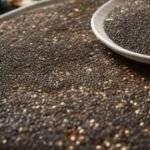



















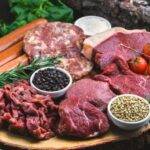






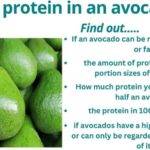






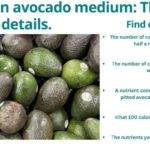


















































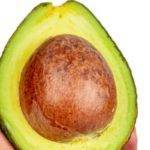











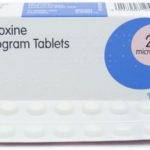


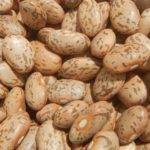
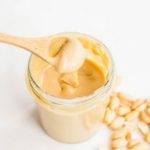








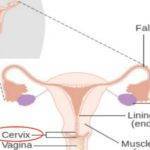




















I don’t usually comment on posts but I got to this time because this is an exceptional piece of writing.